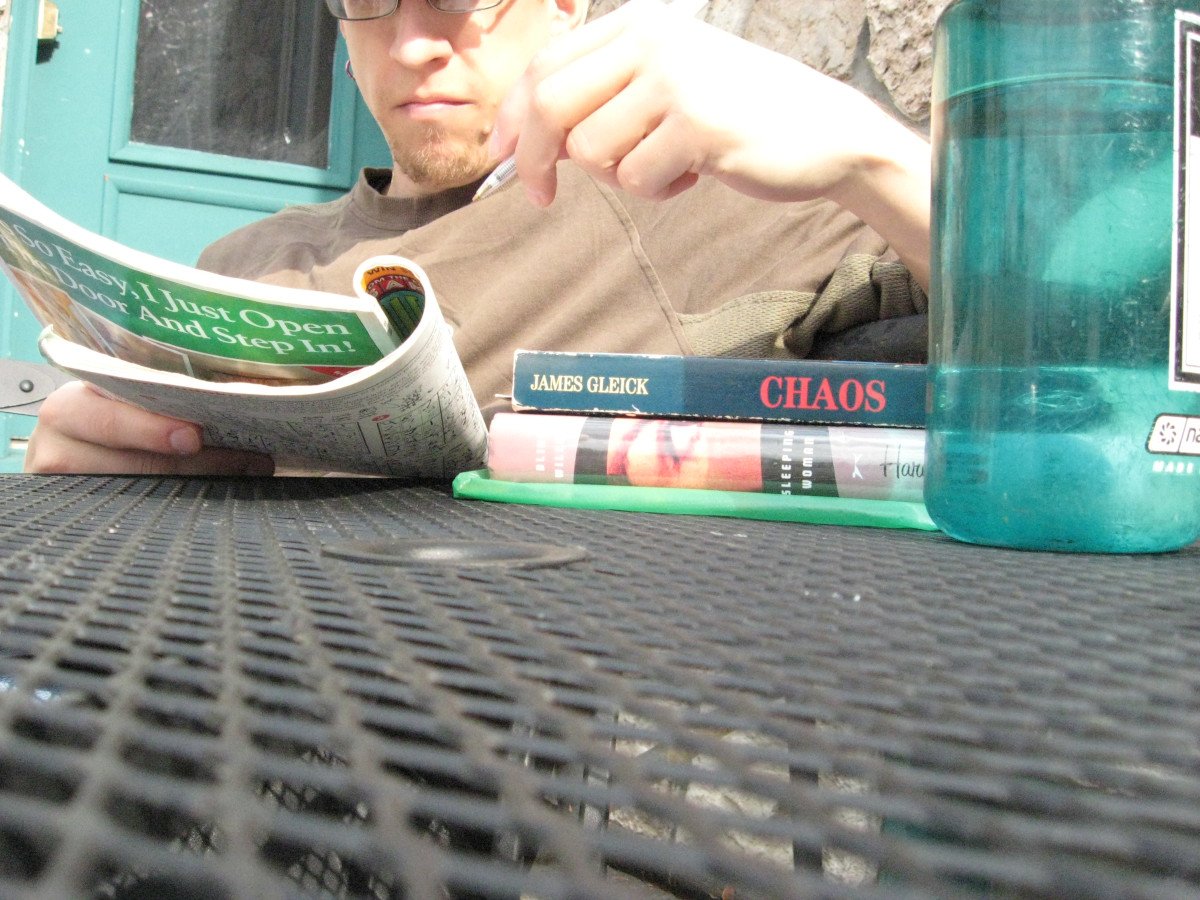
Hope and Action: A Book Review of Roy Peter Clark’s Writing Tools
“If you want to write, here’s a secret: the writer’s struggle is…a con game, a cognitive distortion, a self-fulfilling prophecy.” – Roy Peter Clark, Writing Tools
In early 2019 I was alarmed by how desperate I felt. My larger world was steering into a skid of alienation, despair, and hatred, my family seemed eager to go on that ride, and I felt myself careening right off the cliff with them. Two things magnified my scrabbling urge to escape.
The first was the casual hopelessness which greased the common asphalt. I perceived an ironic unity of vision in my society on this matter and this matter only: we all indulged the assumption that problems were insoluble except through destruction. Shouting and shaking fists and wishing ill in every direction was the best any of us could expect from being trapped in our lives as well as stuck with one another. I felt grieved by the thought that this might be (and remains today) the best that most of us wanted. I mourned our capitulation to a nightmare. Were we not a nation of dreamers?
The second factor which poked a tack in my butt, and the one more responsible for goading me to clamber out the window of the out-of-control vehicle, was the fragile sense of agency I had discovered just two years earlier. My awareness of hope, of positive choices in life, was still in its infancy. After a happy layoff from a decade-long career, I had embarked on a journey of joy, curiosity, and openness to life. I wasn’t ready in 2019 for that to be over. So I got out of the dysfunctional accord and took flight to Spain, to walk.
As I reflect on Writing Tools, by Roy Peter Clark, parallels between my story and the way he speaks about the craft of writing tug at my sleeves like unruly children who have not yet learned the bad ways society wants them to behave. Centrally, the author wants to remedy the paralyzing (and counterproductive) attitudes our world has about writing.

Book Review: The Anatomy of Genres
If you want to improve your basic writing skills, the good news is that there are many good books and classes you can avail yourself of. In fact, a lot of books and classes teach slight variations on the same advice. This is another piece of good news: if you have a choice between two or more classes, then as long as you have an engaged teacher, enthusiastic classmates, frequent assignments, and a system of robust, edifying feedback (i.e. workshops), then one is as good as another.
But what if you want to write better science fiction stories? Horror novels? Romance or western or gangster? Where do you go to learn about genre writing?
One may be surprised (as I once was) to learn of the important of genre-savviness for writers and editors. This is at least the case for those who want to appeal to a big publisher, and perhaps even for those who plan to publish independently. Unfortunately, your run of the mill college writing course or graduate program is not going to bother with genre. In fact, they may consider ignorance of genre to be a point of pride. So other than reading in your area of interest, how can you gain knowledge?
Happily, today you can discover niche courses in places like Masterclass and BBCMaestro. More to the point of this review, the library of instructional genre books keeps growing, and a fine entry on the shelf is John Truby’s The Anatomy of Genres, which was published in 2022.
Truby founded and for thirty years has run a writer’s studio. He is also a regular Hollywood consultant. The depth and breadth of his experience is emphatically on display in his book.
The Anatomy of Genres is big—at 700 pages, it is certainly the largest of all the books on writing I’ve ever read. Its subject matter is vast, and its objective ambitious: the author surveys fourteen genres as he endeavors to classify all of storytelling, traveling from horror to memoir to comedy to romance. And during this tour of the solar system of story types, Truby’s enthusiasm never flags.
Truby naturally divides the material on the basis of genre. He combines forms only a couple of times; memoir is put with coming-of-age (one might argue that the latter is a subset of the former) and detective with thriller, but for the most part each form gets its own chapter. This means that a writer who is mainly interested in learning about fantasy, for instance, need only flip to chapter 11.

Book Review: Writing about Your Life (A Book about Love)
Something I love about writing is that it is a form of self-expression available to almost anyone. Another beautiful, empowering feature of writing (I have said it before) is that it is a skill which can be developed. One great way to elevate your skill is to write every day. Another is to read often, read widely, and, once in a while, read a good book about craft.
Not all books on craft are created equal, so in this arena I’m happy to hand out tips. Today I want to tell you about a fantastic book on the subject of writing memoir by William Zinsser. It is titled Writing About Your Life.
A brief digression before we get into the book. I did not start an editing business only because I’m great at it and know I can earn a living in the field. When I journey with a client, we seek to nurture their passion, boost their self-confidence, deepen their intuition, and fine-tune their craft.
Why do I work this way? It comes down to love. What drove me to enter this arena was a fierce conviction that your voice matters. If you were not meant to be here, you wouldn’t be here. If your story didn’t matter, you wouldn’t be doing anything and nothing would happen to you. But you are here. You do take action. Events, as it so happens, transpire in your life. This all means that there are amazing stories that only you can tell; unique stories that you deserve to tell; vital stories which the world will be enriched by and which it can only hear from you.
This brings us back to William Zinsser’s Writing About Your Life. If I were to summarize it in one word, that word would be love.

The Joy and Perils of Writing Passionately, Part 2: Subject Matter
AI is a hot topic that affords people endless opportunities to read and write about it. As is my style, now that everyone else has had their say, I feel like weighing in. In line with my vocation as an editor, I offer my observations on why we write, how we write, and the sort of impact we have in the wonderfully crowded and cacophonous auditorium of human communication (as it happens, today I do have some observations of my own about AI).
Last week we talked about tone: how you sound in your writing. Read about that here. Today we’re going to talk about subject matter: what you write about, and how this, like tone, affects your connection with readers.
Pattern Two: Writing to oneself and forgetting about the reader
Key observation: Many essays and comment about AI write to the author’s concerns rather than those of the reader.
This is part of the reason why pattern one (see last week’s post) exists. Once again it’s complicated, because we could easily add to the axiom “Write what you know,” the rider “and what you care about.”
So off the bat, I’ll clarify that I am not suggesting that you (when I say “you,” I’m talking to every writer, not just editors) not write about what matters to you. In fact I try not to say you should or shouldn’t anything. Unless I am helping you tidy up your spelling and punctuation or enforcing a client’s style guide, my aim is to provide insights, perspectives, and recommendations, then step back so you can make your own best choices.
Nor am I precisely saying you shouldn’t write to yourself. One of my own favorite ways to get my own writing off the ground is to write as if I am the only one who will read it, and I can carry on in that spirit for quite a while before I remember the outside world. There’s a therapeutic side to creative expression that is precious and productive.
Instead, most of the advice which follows is aimed toward the tail end of the creative process, when you as a writer (and your editor as your companion) are reflecting and refining upon how engaging your writing will be.
By engagement, I am not talking about how to transfix people with a flood of hypnotic “content.” Instead I mean the writing equivalent of a shared experience, like looking someone in the eye, feeling the roar of a stadium together, feeling ice cream drip down our wrists at the same time, hugging someone or picking a painful splinter out of the communal palm. How close will you and your readers come? How deep does the resonance of your writing go?

The Joy and Perils of Writing Passionately, Part 1: Tone
AI has been a hot topic for a while now, and as such it affords people endless opportunities to read and write about it. As is my wont, now that everyone else has had their say (a few times over) I feel like weighing in—but not on AI. Instead, in line with my vocation as an editor, I offer my observations on why we write, how we write, and the sort of impact we have in the wonderfully crowded and cacophonous auditorium of human communication.
What I have written is somewhat long, so I’m breaking it into two pieces. Part one comes out today. Stay tuned for part two next week!

Want to Grow as a Writer? Read! (Plus, a review of The Art of Memoir)
Good news! Writing is a skill like any other, which means that it can be developed. One of the many benefits of hiring an editor is the chance to sharpen your abilities with someone who operates, on one level, like a personal coach. With a good editor, you receive custom insights on how best to refine not only how you put words on the page but also grow in your practices of self-discovery and communication in general. Of course, not every occasion calls for an editor. There are many ways to develop your writing muscles: join a writing circle, take a class…read books.
Let me repeat that for emphasis: read books! Reading in the realm of what interests you is one of the most valuable (and economical!) ways of honing your abilities. Just be advised: reading in your genre is probably a much better use of your time than reading about it. Books promising to teach you how to write abound. For memoir alone there are an abundance of well-intended books trying to pick the bones of how to. (In fact, at the end of this blog and in future installments, I will review such books to help you make informed decisions about your personal development.)

Self-Expression First; Profit Second
When I meet with a new client, I clarify early that I do not offer marketing and publishing strategy as explicit editorial services. Why on earth would I say such a thing, you might wonder, and what use to a client are my editorial skills, when book publication or increased website traffic is almost certainly an end goal?
It’s a great question, and I’d like to explain from two perspectives the method behind my mad passion to empower you by not prioritizing marketing.

You and your ideas are on a journey
The day you loosed your ideas from the confines of your mind, you embarked on an adventure.

Poco a poco, querido escritor
“Little by little, dear writer”
Growing up, and for much of my adult life, I did not have a good relationship with adversity.
I had ambitions like anyone else, creative and otherwise. I often set out in pursuit of my goals with great passion and anticipation. Sadly, setbacks and inner demons — the worst of which was the abiding conviction that I was not allowed to succeed, that it would be a disaster if I did, and that I was alone in this travail — routinely defeated me. More accurately, owing to these beliefs ingrained in me from a young age, I chose to be alone and defeated.
Some rebellious part of me has always been discontent with this disastrous way of life.